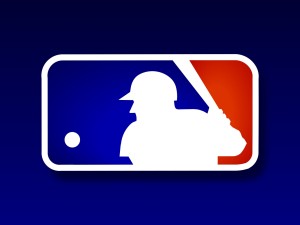In a move that commissioner Bud Selig has deemed “historic,” Major League Baseball has decided to move forward with a proposal that would expand the use of video review next season. The final decision won’t be made until the owners vote in November, but the current plan is to allow managers up to three challenges per game, with one available for the first six innings, and two available from the seventh inning until the end of the game. Managers will be able to use these challenges for practically every questionable call beyond the strike zone, and any challenged plays will be reviewed by a crew at MLB headquarters in New York. If a manger wins a challenge, he will retain it.
I expect fan response to this news to be divided. Progressive-minded ones will likely applaud the move, since technology is so readily available and could easily be used to “get the right calls.” However, purists will probably deride the move for two main reasons: 1) the removal of “the human element” and 2) the inevitable lengthening of games.
While I can understand the qualms many fans might have with this plan, it seems baseball has done a good job to address those complaints ahead of time. I’m a big fan of the human element, but since baseball isn’t including the strike zone as reviewable, I think they’ve done little to really infringe upon it. Whether or not a runner beats a throw or a gets his hand in under a tag — these are often clear right and wrong decisions. But the strike zone? Everyone has a slightly different conception of what is and isn’t a strike, and part of the intrigue of a baseball game is watching the batters and pitchers adjust (as long as that umpire stays consistent).
The lengthening of games could be a legitimate concern, and, in fact, ESPN reports it was the major roadblock for Selig. However, with a direct line of communication from the ballpark to MLB’s central office, officials estimate “replays under the new system will take 1 minute, 15 seconds,” which is over 60 percent faster than the average review takes under the current system.
Furthermore, it’s entirely possible that time will be saved as a result of the probable decrease in managerial arguments. Under this new system, five- or six-minute rants from managers could be replaced by 75-second replay reviews.
Until we see the system in action, there’s no way of knowing for sure, but even if the proposal passes in November, the system won’t go into effect until the 2014 playoffs, and then, if all goes well, the 2015 season.
While that’s a long ways away, this is still a major move for the sport to be considering, and what most interests me is how such changes will affect managerial strategy. As most fans know, there’s a generally accepted way to handle most situations in a game (ie, going by the book), but replay will add an unknown element to the game that will, at least initially, make paint-by-number managerial decisions increasingly difficult.
“We believe this will be very impactful and very, very meaningful and useful for all sides,” Atlanta Braves president and member of the replay committee John Schuerholz told ESPN. “Managers will have a new tool that they’ll have to learn how to use.”
As a general rule of thumb, it might make sense for a manger to challenge any play he believes is called wrongly, but in many instances, that might not be the right call. For instance, if a manger still has his early challenge available and a player gets thrown out on a steal of second with two outs in the sixth, it would be a no-brainer to challenge the play. However, if that same play occurs in the second inning, the decision becomes a much tougher one – one that will require a manager to consider what the count is, who’s batting, who’s pitching, and what the current status of the game is, among other variables. If it’s a left-handed cleanup hitter against a right-handed pitcher, it might be worth a challenge, but if it’s a light-hitting, eight-hole hitter… then it might be best to save that challenge for a potential impact play in the third, fourth, fifth or sixth inning.
As a hardcore baseball fan, I really like these split second decisions, because nothing is more fun than “Monday-morning quarterbacking.” As such, I’m inclined to throw my support behind this decision, albeit with one major caveat – the concept that each manager gets two challenges after the seventh inning.
My reason for this is simple – it gives the managers cart blanche to arbitrarily use at least one challenge per game with no consequence, because they’ll always hav e a second one to lean back on. Theoretically, if a manager only has one challenge, he would have to be very careful with how exactly he employed it (as outlined above); but under this setup, managers can willy-nilly challenge anything at all after the seventh inning and would only have to begin thinking strategy once they lose one.
e a second one to lean back on. Theoretically, if a manager only has one challenge, he would have to be very careful with how exactly he employed it (as outlined above); but under this setup, managers can willy-nilly challenge anything at all after the seventh inning and would only have to begin thinking strategy once they lose one.
As a result, I’d much prefer the idea of each manager getting two challenges during regulation, one for the first six, and one for the back three. If a game goes extra innings, maybe then the managers could be given one more challenge. In this way, MLB would be making the challenge a precious commodity, thus avoiding frivolousness.
Frank Visco is a contributing writer to Philly Sports Jabronis.
 Philly Sports Jabronis
Philly Sports Jabronis


